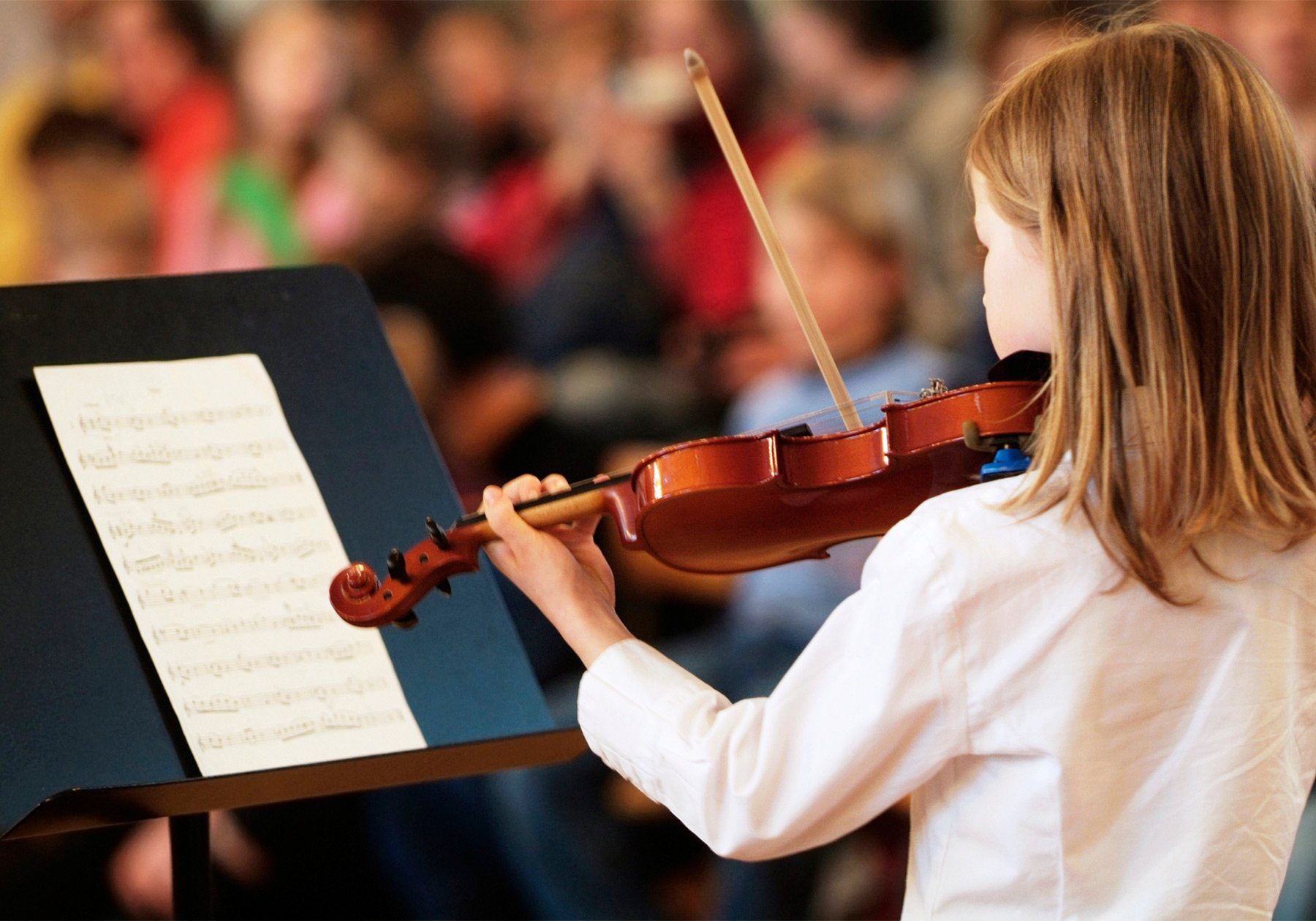
Why do we enroll our children in music lessons? Why do we sign them up for basketball, karate, or gymnastics? It’s not because we believe they will become professionals. It’s because these activities are more than just sport or hobbies; we believe they are character builders. Forbes recently published an article by Kathy Coprino, a career success coach, who collaborated with Dr. Tim Elmore (bestselling author of over 25 books and Founder and President of Growing Leaders) to provide insights into damaging parenting behaviors. The article pinpoints 7 things parents do that prevent their children from reaching their full potential.
While the article is general, much of it can be applied directly to the parent-child relationship associated with music lessons. As a classically trained musician and classroom and private music teacher, I have experienced the demands of music lessons firsthand, and have worked with hundreds of families as their children learn to access music. The relationships formed during music lessons go far beyond child and music; they include child-teacher, parent-teacher, and parent-lesson. But the longest standing (and, arguably, most important) relationship will typically be child-parent. Combining insights from Kathy Coprino’s Forbes article and my extensive background in both teaching and learning music, I have correlated the “7 damaging behaviors” parents can exhibit as they relate to their child’s ability to successfully learn an instrument.
1. we don’t let our children experience risk
Even if parents aren’t musically gifted, they will have an opinion of how “good” or “bad” their child sounds. What happens when parents realize their child does not equal or surpass their expectations or peers? They might anticipate and even prevent disappointment or embarrassment by shielding their child from performances, talent shows, group ensembles, or competitions.
What happens when your child realizes that he or she is performing at a level below their peers? This can be your child’s greatest opportunity for growth. Allow children to experience this possible failure and compare themselves to their peers. The innate quality of competition exists in almost everyone. Let your child discover it and use it as inspiration and motivation to work harder and improve.
2. we rescue too quickly
Some days our children do not feel like working hard. Some days our children come home from school more tired than usual and in a negative mood. We see them approaching their practice or lessons struggling, complaining, and maybe even throwing tantrums. We might step in and allow them to not practice and agree that the music is too hard. We might even decide to cancel their lesson because we feel a little overwhelmed and tired too…
Stop! Do not change your child’s schedule! A child thrives on routine. Help your child learn self-discipline and control of their emotions. Help them work through whatever they are experiencing by having them articulate their difficulty. If they are resisting communication, have them write it down. The more definitively you can define their musical challenge, the better both you and their music teacher can help them. If you know nothing about music, you are still helping them learn how to communicate their challenges and emotions.
3. we rave too easily
Don’t we all love compliments and affirmation? But think about the moment you were the most proud of yourself. You didn’t need someone to tell you to be proud – the feeling came from internal satisfaction as a result of an endeavor that came out how (or better than) you expected. Children expect compliments on unfinished products only because they receive them. Instead, say something that will motivate them to keep improving. Here are some ideas:
- Instead of saying “good job” or “that sounds great,” think of something specific to complement, such as dynamics, tempo, emotion, a section. Whatever you say, don’t let them feel like they have a finished product if there’s still work to be done.
- When they play for you a riff or the popular part of a song, tell them you’re excited to hear the rest of the song as well.
- Compliment them not on the product but on how much effort they are giving.
4. we still let guilt get in the way of leading well
This guilt takes us back to behaviors in both #2 and #3. We feel bad when our children are tired, unhappy or upset. Setting up and maintaining practice routines and weekly lessons can be tough. It takes time to adjust for both the parent and student. The sooner you and your child get into a routine and stick to it, the easier it will be later down the road of the musical journey. Keep your emotions and your schedule out of the way of your child’s routine.
5. we don’t share our past mistakes
2 declarations I regularly hear from my student’s parents:
- “The biggest thing I regret is stopping lessons when I was a kid.”
- “I wish I had practiced more when I was a kid.“
As parents, you regularly share with your children that you once tried something, but you don’t explain why you weren’t good at something or why you quit. Can you be honest with yourself as well as with your children? Can you explain that at one point you too had a hard time getting over not playing outside or playing with your toy of the day in order to make time for your instrument? Sharing your emotions and past weaknesses may help them accept and overcome their own.
6. we mistake intelligence, giftedness, and influence for maturity
This leads me to the 3rd most common parental declaration: “I have no musical talent whatsoever.”
After such statements I must refrain from responding with Thomas Edison’s famous adage, “Genius is 99% perspiration and 1% inspiration.” It’s a wonderful thing for all parties involved when a child turns out to be very talented at playing an instrument. On the other hand, a child struggling with their instrument is still growing and developing. Don’t give up on your child if their natural talent isn’t as you hoped or they aren’t progressing as quickly as their peers. Conversely, if your child is innately talented, it’s also just as important to not put your talented child on a pedestal. This will make it difficult for them to handle criticism and disappointment later down the line.
7. we don’t practice what we preach
If you’re unsure of what music practice entails because you’re not the actual student, here is a list of tips to follow while the music teacher is away and the kids are at play:
Behaviors to Follow:
- Figure out the basics with your child. Method books have a wealth of information to help you and your child along if they are struggling.
- Sit in on an occasional lesson so you get a better idea of what your child is learning. Don’t try and participate or ask questions – if you must, save that for the end.
- Listen to your child practice. Check to see that they are practicing assigned pieces mid-week. Steer them away from practicing the same old song over and over again.
Behaviors to Avoid:
- “But I don’t know how to read music” is not an excuse for anything. Use the basics to slowly figure it out. Simply struggling with your child will often motivate them to figure it out on their own. If you still can’t figure it out, write down (or have your child write down) exactly what they don’t understand for their next lesson with their music teacher.
- “They had so many projects and activities this week” is basically like saying “the dog ate my homework” to a music teacher. Anyone can come up with excuses; instead, help your child find a routine practice time, no matter how short. Prioritizing commitments and time management are life-skills that can never be started too early.
- Say “Go practice” while the rest of the family is doing “fun stuff,” like watching movies, or laughing in conversation, or playing with other siblings. Make sure your child has a peaceful environment to practice in so they don’t feel like they are being pulled away from or excluded from any distracting activities.
There are 10,080 minutes in a week. You pay an expert for 30 of these to give your child the tools they need to successfully master their instrument. During the other 10,050 you are the most important person in their development (both musically and otherwise). Although being a musician may not be your child’s current dream or your own, help them keep that door open. That skill is a lifelong gift to them that they might not thank you for today, but that they will appreciate in their days to come.
about the author
 Karen Spurney holds a Bachelor’s Degree from the University of Southern California in piano performance and has over a decade of experience in teaching piano. Karen has played with orchestras and performed in both small and large ensembles. She has produced and conducted dozens of performances for K-8 students. Karen is also the co-author of NOTEBUSTERS.
Karen Spurney holds a Bachelor’s Degree from the University of Southern California in piano performance and has over a decade of experience in teaching piano. Karen has played with orchestras and performed in both small and large ensembles. She has produced and conducted dozens of performances for K-8 students. Karen is also the co-author of NOTEBUSTERS.

Really great article – I’ve been teaching piano for 10 years and I wish I could force all my student’s parents to read this. Definitely a good read for parents with children that are currently learning music or are interested in learning music.
I have 2 kids in music – one the plays the piano and one that plays violin. I think my biggest takeaways from this article were about the need to create routine and being more specific with compliments. I found that my generic “good jobs” weren’t carrying as much weight as they used to. Showing interest by specifically calling out what was good or what I thought they improved on has made a noticeable difference. They’re more interested in practicing and you can almost hear the motivation when the play their instruments. Thanks for helping me continue to foster a positive environment for my kids to excel at music! 🙂
I very much appreciated this article. It was a little tough to read as I definitely practice some of the behaviors I probably shouldn’t as a parent, but this was a great reminder of what’s best for my kid. It’s easy to support a child that’s brilliant at their instrument, and not that tough if they’re very interested but not moving as quickly as they like – what’s difficult is continuing to push your child when they’re not that interested and don’t appear to have “natural” ability. I’ve noticed commenting on specific small victories and just showing I’m genuinely interested in the process seems to help. Your statement at the end is spot on though – I need to let the music teacher I pay lead the way during lessons, but for all other hours of the day I need to ensure I’m creating a positive environment conducive to learning. I’m not sure my kid will be (or wants to be) a musician later in life, but I certainly want to ensure she has that opportunity – the other benefits from her learning music at a young age from a development standpoint are also a bonus…